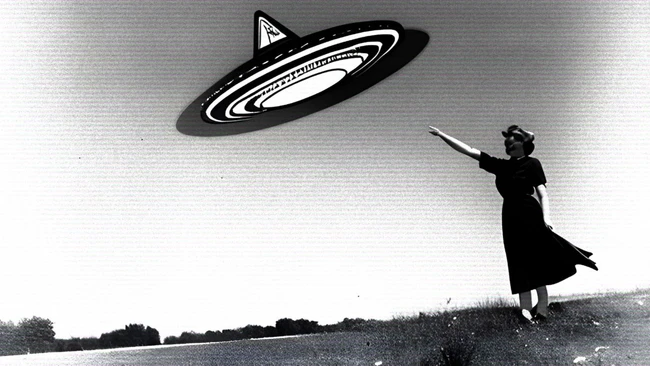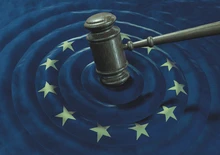
NASA has revealed it will begin using AI to study unidentified flying objects (UFOs) and gather more robust data on sightings of the phenomena.
In an independent study into what it calls unidentified anomalous phenomena (UAPs), the US space agency said AI and ML technologies would be essential to developing a better understanding of aerial phenomena and gathering data on potential sightings.
“The panel finds that artificial intelligence and machine learning are essential tools for identifying rare occurrences, potentially including UAP, within vast datasets,” the report reads.
“However, these powerful techniques will only work on well-characterized data gathered with respect to strong standards. NASA’s extensive experience in the application of state-of-the-art computational and data-analysis techniques should therefore be leveraged to provide critical assistance.”
The study, carried out by an independent team of 16 scientists, data and AI experts, and aviation safety specialists, was tasked with creating a road map for NASA to lead a more scientific approach to gathering and analysing data about the phenomena.
The US agency commissioned the study to understand how it can contribute to ongoing efforts to study objects in the sky that cannot be identified as balloons, aircraft, or known natural phenomena from a scientific perspective.
In a press release, NASA’s administrator Bill Nelson said the study marked “the first time NASA has taken concrete action to seriously look into UAPs,” adding that the agency wants to “shift the conversation about UAPs from sensationalism to science.”
“NASA’s new Director of UAP Research will develop and oversee the implementation of NASA’s scientific vision for UAP research, including using NASA’s expertise to work with other agencies to analyze UAP and applying artificial intelligence and machine learning to search the skies for anomalies. NASA will do this work transparently for the benefit of humanity.”
‘Fragmented data’
The study’s team said that NASA can play a key role in the government’s effort to understand UAP by furthering the study and data collection of UAP.
It recommended that the agency use “open-source resources, extensive technological expertise, data analysis techniques, federal and commercial partnerships, and Earth-observing assets to curate a better and robust dataset for understanding future UAP.”
NASA's recommendations are very similar to those in our recent @RANDCorporation research on UAP data: https://t.co/8sW9WnPFFU
Focusing on the science is key to destigmatizing this topic. The same goes for ensuring that rhetoric on UAPs doesn't take a dark, anti-government turn. https://t.co/qAf0GEcxWp
— Marek N. Posard (@mnposard) September 15, 2023
In May 2023, representatives from the study team expressed frustration with the fragmentary nature of available UAP data.
“The current data collection efforts regarding UAPs are unsystematic and fragmented across various agencies, often using instruments uncalibrated for scientific data collection,” said study chair David Spergel at the time.
Existing data and eyewitness reports alone are insufficient to provide conclusive evidence about the nature and origin of every UAP event.
A data-driven approach to studying UFOs
NASA is expected to call on companies, pilots, and thousands of citizen scientists to track UFO sightings and gather concrete data on the phenomena.
It also plans to improve citizen reporting by engaging with the public and pilots to build a broader, more reliable UAP dataset to use to identify future UAP incidents as well as destigmatise the study of UFOs.
“Data is the critical lifeblood needed to advance scientific exploration, and we thank the independent study team members for lending NASA their expertise towards identifying what available data is possible to understand the nature and origin of future UAP,” said Nicola Fox, associate administrator, Science Mission Directorate at NASA Headquarters in Washington.
“The director of UAP Research is a pivotal addition to NASA’s team and will provide leadership, guidance and operational coordination for the agency and the federal government to use as a pipeline to help identify the seemingly unidentifiable.”
Taking place on 26-27 September at the RAI, Amsterdam, AI & Big Data Expo is the leading event for Enterprise AI, Machine Learning, Security, Ethical AI, Deep Learning, Data Ecosystems, and NLP. The event will bring together dozens of speakers from across various industries to discuss the latest developments in the world of AI & Big Data.
It is a showcase of next-generation technologies and strategies from the world of Artificial Intelligence & Big Data, an opportunity to explore and discover the practical and successful implementation of AI & Big Data in driving forward your business in 2023 and beyond.












